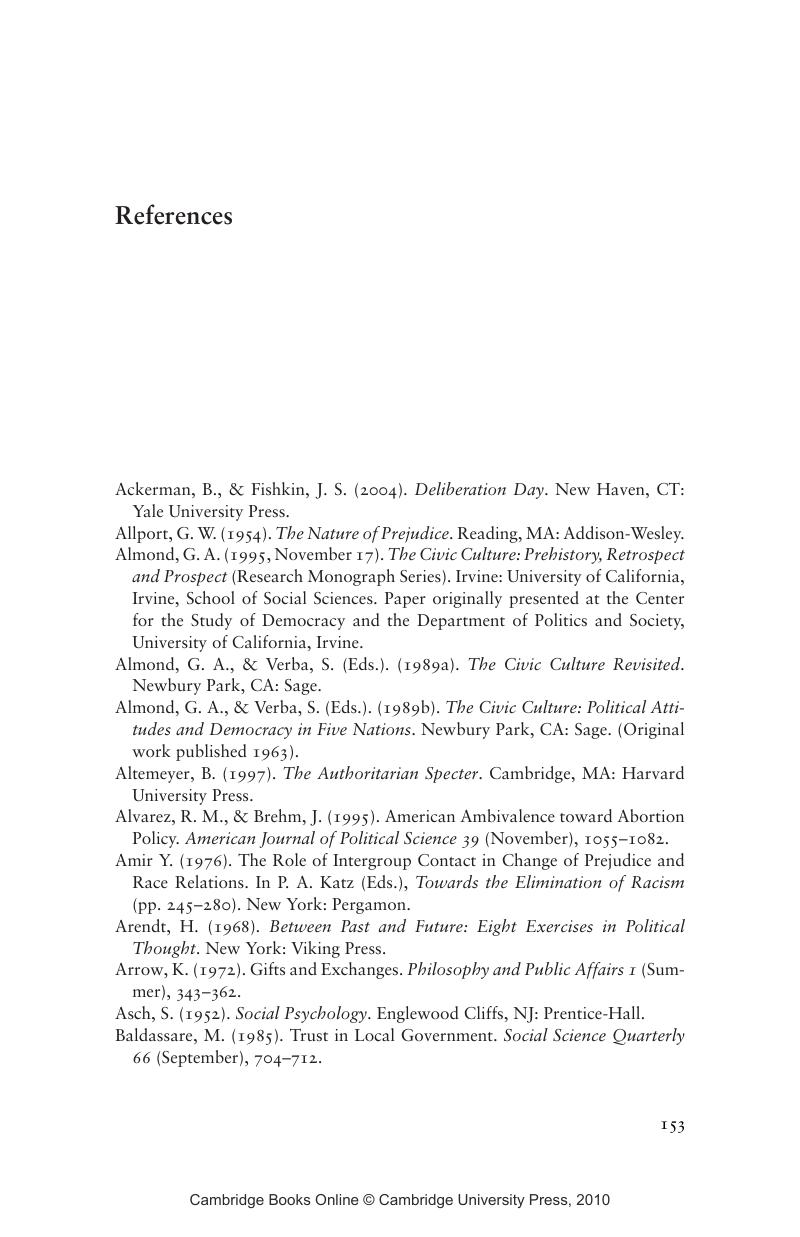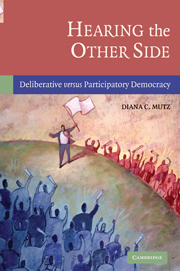References
Published online by Cambridge University Press: 05 June 2012
Summary

- Type
- Chapter
- Information
- Hearing the Other SideDeliberative versus Participatory Democracy, pp. 153 - 166Publisher: Cambridge University PressPrint publication year: 2006



